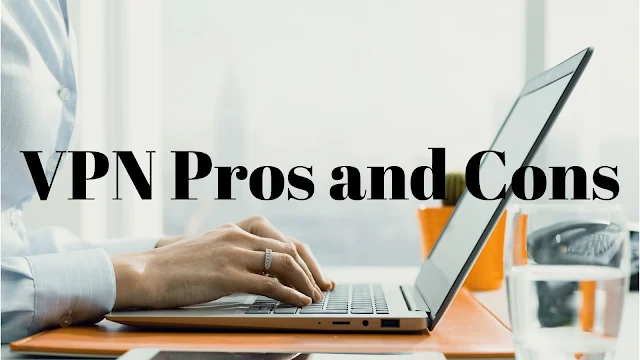A Virtual Private Network (VPN) has become an essential tool for many internet users who value privacy, security, and unrestricted access to online content. By creating a secure, encrypted connection between your device and the internet, a VPN can help protect your data from prying eyes, mask your online identity, and allow you to bypass geo-restrictions. While VPNs offer numerous benefits, they also come with certain drawbacks. This article explores the pros and cons of using a VPN to help you decide whether it's the right tool for your needs.
A Virtual Private Network (VPN) has become an essential tool for many internet users who value privacy, security, and unrestricted access to online content.
Pros of Using a VPN
Enhanced Privacy and Anonymity
- A VPN masks your IP address by routing your internet traffic through a remote server. This makes it difficult for websites, advertisers, or even your Internet Service Provider (ISP) to track your online activities. For users concerned about online privacy, a VPN is an essential tool to maintain anonymity.
Improved Security
- VPNs encrypt your internet connection, making it much harder for hackers, cybercriminals, or malicious actors to intercept your data. This is particularly important when using public Wi-Fi networks, which are often insecure and vulnerable to attacks like man-in-the-middle attacks.
Access to Geo-Restricted Content
- By connecting to a server in a different location, a VPN allows you to bypass geographical restrictions and access content that might be blocked in your country. This is useful for streaming services, accessing censored websites, or using services that are only available in specific regions.
Avoiding Censorship
- Pro: In countries where the internet is heavily censored, a VPN can help users access blocked websites and services. This is crucial for journalists, activists, and citizens who need unrestricted access to information.
Secure Remote Access
- VPNs are widely used by businesses to allow employees to securely access the company's internal network from remote locations. This is particularly useful for remote work, ensuring that sensitive company data remains protected.
Preventing ISP Throttling
- Some ISPs throttle (slow down) your internet connection when they detect high-bandwidth activities like streaming or torrenting. A VPN hides your online activities from your ISP, preventing throttling and ensuring a smoother browsing experience.
Bypass Firewalls
- VPNs can help you bypass firewalls set up by governments, organizations, or schools, allowing you to access the internet freely. This is useful in environments with strict internet controls.
Cons of Using a VPN
Slower Internet Speeds
- Because a VPN routes your traffic through a remote server and encrypts your data, it can lead to slower internet speeds. The degree of slowdown varies depending on the VPN service, server location, and your internet connection. While premium VPNs minimize this impact, free or low-quality VPNs might significantly reduce your browsing speed.
Potential Security Risks
- Not all VPNs are created equal. Some VPN services, particularly free ones, might log your data, sell your information to third parties, or have weak encryption standards. It's essential to choose a reputable VPN provider that prioritizes user security and privacy.
Cost
- While there are free VPNs available, they often come with limitations, such as data caps, slower speeds, and fewer server options. Paid VPNs, which offer better performance and security, require a subscription fee, which can be a drawback for budget-conscious users.
Complexity for Beginners
- Setting up and using a VPN can be challenging for users who are not tech-savvy. While many VPN providers offer user-friendly apps, understanding the different settings and options can be confusing for beginners.
Limited Compatibility
- While most VPNs are compatible with a wide range of devices, some devices, such as smart TVs or gaming consoles, may not support VPNs directly. This might require additional setup steps, such as configuring the VPN on a router, which can be cumbersome.
Potential Legal Issues
- In some countries, using a VPN is restricted or outright banned. Users in these regions risk legal repercussions if caught using a VPN. It's essential to be aware of your country's laws regarding VPN usage to avoid potential penalties.
Not a Complete Privacy Solution
- While a VPN enhances your privacy, it is not a complete solution. Other factors, such as browser tracking, cookies, and online accounts, can still compromise your privacy. For comprehensive online security, a VPN should be used in conjunction with other privacy tools and practices.
Trust Issues
- When you use a VPN, you’re essentially transferring trust from your ISP to your VPN provider. If the VPN provider logs your activities or fails to secure its servers, your privacy could be compromised. It’s crucial to research and choose a trustworthy VPN provider.
Conclusion
VPNs offer significant benefits, including enhanced privacy, security, and the ability to access geo-restricted content. However, they are not without their drawbacks, such as potential slowdowns in internet speed, cost, and the complexity of use. Understanding these pros and cons is essential in deciding whether a VPN is right for you. For users who prioritize privacy and security or need to bypass regional restrictions, a VPN is an invaluable tool. However, it’s important to choose a reputable VPN provider and use it alongside other privacy practices to ensure a secure and smooth online experience.

Comments
Post a Comment